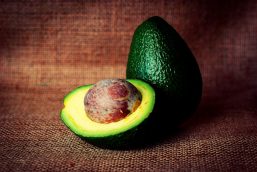
Why Is Cuddling so Powerful?
Is it possible to quickly and safely improve our psychophysical condition? According to scientists, the answer is “yes, of course”. Apparently, all we need to do is cuddle. Well, there are some other things that would certainly help but now let’s focus on that one. So, grab your significant other or anyone you are close to - maybe your child or a favorite pet - and read about the whole spectrum of benefits that cuddling brings about!
Why Is Cuddling so Powerful?
Although our planet spins with the same velocity as always, it seems like the world becomes somewhat faster, and so do our lives. We run from one assignment to another, in the meantime scrolling through notifications, each millisecond receiving more data than ever in human history. Such a lifestyle, in the long run, inevitably leads to a burnout experience and a chronic fatigue syndrome, which can in turn seriously damage our physical and mental health. Luckily, there is a simple yet powerful way to immediately improve our condition – cuddling.
What is cuddling anyway?
Well, this question might sound obvious. The word “cuddling” is perhaps instantly associated with an image of a couple in love or a child carried by a parent. Indeed, embracing is the most common activity that we consider to be cuddling. Yet, there are more! All sorts of tender physical contact – with or without clothes – counts as cuddling. Thus, its other forms are stroking, massaging, leaning on one another and supporting each other’s bodies, and even holding hands. This wide definition is good news for all those who are currently single. As it turns out, a romantic relationship is not necessary to reap the benefits of cuddling because we can cuddle with close friends or family members too! There is even some scientific evidence, which shows that stroking a pet or a toy may have similar effects. How about that! Alternatively, we can invest in a weighted blanket or a sensory pillow that can (sort of) simulate cuddling. Alright, but what are the benefits of this tender touch?
Cuddling for high spirits and vitality
Research evidence shows that any form of tender touch brings about immense benefits – both physiological and psychological. On the physical side, it has a positive impact on general health, especially the condition of the cardiovascular and immune systems. What is more, it can strengthen the metabolism and even decrease pain. The effects of cuddling that are related to mental health include: boosting a good mood, increasing the feeling of security, supporting stress resilience and creating stronger bonds between cuddlers. Where do these almost magical benefits come from? The answer is – oxytocin.
Oxytocin is a substance produced by the hypothalamus and secreted by the pituitary gland. This neurohormone is often called “the love hormone” because its production increases in response to tender physical contact. Incredibly, this effect has been observed in all mammals, as well as some birds and reptiles. Thus, it appears that oxytocin plays a crucial role in forming social connections and – as scientific evidence has it – brings a wide spectrum of health benefits.
Simple touch can work wonders
In 2010, the team of researchers led by Dr. Grewen from the Faculty of Psychiatry at the University of North Carolina made an extraordinary discovery. Scientists investigated the relationship between tender touch and stress resilience. Almost a 100 couples from diverse demographic backgrounds took part in their experiment. Participants were first asked to watch a 10-minute video and then give a short presentation in front of a grumpy audience (this task is commonly used to raise the stress levels, as you might recall from school times). During the presentation, scientists have recorded their blood pressure and the rate of heartbeats. Importantly, one half of participants watched the recording while holding hands with their significant other, whereas the other half didn’t. In this way, scientists could measure whether this tender contact has an impact on physiological indicators of stress. Indeed, the results confirmed the existence of such a dependency. Namely, in those participants who held hands before giving a speech, both markers were significantly lower than in those who didn’t receive physical contact. This effect was comparable between genders and relatively independent of age and demographic factors. The results of this study suggest that cuddling can potentially support our stress resilience and even help with prophylaxis of the heart and cardiovascular system diseases.
The immune system might get stronger too
Scientists, encouraged by positive results of the experiment described above, have begun studying other effects of this affectionate, close contact. The team from the University of Arizona has run a pilot study which tested the dependency between cuddling behaviors and the condition of the immune system. Researchers invited 20 healthy adults to participate in this experiment and asked them to record any incidents of tender touch during the following 14 days. Beforehand and right afterwards, scientists have also sampled the saliva of participants, in order to measure the density of pro-inflammatory cytokines such as interleukins 1-β, 6 and 8 and tumor necrosis factor alpha. Thus, they were able to directly compare the regularity of cuddling with the activity of the immune system. They discovered an encouraging dependency: the frequency of snuggling was negatively correlated with the degree of inflammation! In other words, the results of this study imply that the more we cuddle, the better the condition of our immune system is!
A natural way to improve sleep
Perhaps everybody knows how it is to pull an all-nighter. Thus, there is no need to explain the way we might feel the next day. There is, however, a disease called “sleep apnea” which is characterized by repetitive episodes of short or stopped breath (hypopneas) that greatly disturb the sleep of patients. As a result, they suffer from sleep deprivation and all related cognitive symptoms: mind fog, trouble with memorizing and learning, and low mood. Sadly, until now there is no known cure for sleep apnea.
Scientists from the Faculty of Medicine at the University of Washington have designed an experiment to check whether intranasal administration of oxytocin could relieve some symptoms of sleep apnea. They have run a clinical trial with 8 participants who suffered from this disease and volunteered to sleep at the clinic. For several consecutive nights, researchers have measured the indicators of their sleep quality, such as the number of hypopneas and arousals caused by them, as well as the total sleep duration. Additionally, they recorded a marker of autonomic nervous system activation called the heart-rate variability. Next night, participants received an intranasal dose of oxytocin and scientists repeated measurements. Thanks to that, the influence of this neurohormone on sleep quality could be assessed.
Results of this experiment have revealed that after oxytocin administration the breath of participants became deeper, and the episodes of complete hypopnea occurred less frequently. What is more, the number of awakenings caused by trouble with breathing decreased. Additionally, oxytocin has increased the activity of the parasympathetic branch of the autonomic nervous system. As a result, the total duration of sleep became longer and the subjective feeling of refreshment in the morning was enhanced. Thus, it would be reasonable to assume that oxytocin helps to restore the proper functioning of the respiratory system and makes relaxation easier. What can we conclude from this study? Well, perhaps if we cuddle right before falling asleep, we will wake up feeling more refreshed!
It might be good for your relationship…
The fight with our significant other can dramatically influence our well-being – and usually does so. Luckily, scientists have good news for us! Apparently, cuddling can help us go through those hardships with our heads and moods high. This is the conclusion from a study led by Dr. Sheldon Cohen from Carnegie Mellon University in the United States. To collect the data, for 14 consecutive days scientists have interviewed a representative sample of 404 adult Americans. They asked the volunteers about their cuddling behavior, mood, and also recorded any episodes of fights within the relationship. Next, they analyzed obtained data to establish how cuddling influences our behavior when we are facing conflicts. The results were, on one hand, no surprise: participants reported better moods on the days when they cuddled and worse on the days when they had an argument. Surprisingly, however, people who were hugged on the day of the fight, ended up feeling more positive than those who experienced the conflict alone. Additionally, these results suggest that tender touch may have some sort of protective effect upon our mood. Namely, if participants cuddled one day and got into a fight the next day, this would affect their moods less than in the case when conflict was not preceded by snuggling. Therefore, episodes of physical closeness may act as a shield which protects us from negative consequences of stress. So, next time when you have a doubt whether to hug someone or not, do so – of course upon the consent of the other person! You can help each other to sail safely, even through the storm of stress.
…and to spice up the things in bedroom
Letting yourself fully soften in the embrace of another person is perhaps one of the most pleasant experiences we can think of, right? Well, results of an experiment run by psychologists from the Faculty of Psychology at the University of Toronto Mississauga show that this is especially true for women who just had sex. What is more, they prove that tenderness between partners in these moments is crucial to build connection and trust in the relationship – according to both genders. So, how exactly did this experiment look like? Due to ethical constraints, scientists could not directly observe intimate behaviors of humans, and instead had to use two questionnaires. In the first one, 335 persons of both genders were asked to describe some aspects of their sexual life. Particularly, the questions focused on the frequency and quality of cuddling, stroking, and sharing stories right after intercourse. Additionally, participants could rate the level of satisfaction that they experience within this relation and their sexual life. Results were clear. The more tenderness partners received after sex, the happier they felt about both the relationship and their sex.
Next, scientists ran a second experiment that took 3 months and involved both partners within 101 couples. Participants were asked to report all instances of tenderness (in and out of sexual context) and their level of satisfaction from the relationship every day. Results have demonstrated a correlation between the frequency of cuddles and the perceived quality of relationship. In other words, on days when they received less hugs, participants reported lower satisfaction. The same held true in reverse – more tenderness meant higher satisfaction scores. Although this dependency was observed in both genders, the effect was stronger in females. What is more, only for women the level of tenderness was directly proportional to reported sexual satisfaction. These results prove that cuddling after sex is the best way to strengthen the relationship!
No significant other to cuddle? There are other options!
Oxytocin is released within our system in response to any form of tender physical contact. Scientists from the University of Agricultural Sciences in Uppsala, Sweden, were thus inspired to check whether this includes intraspecies contacts as well. Therefore, they invited 10 women and their four-legged companions – labradors – to participate in the following experiment. Participants were asked to gently stroke their dogs while speaking to them softly. Another group of 10 women formed a control sample and instead of playing with their dogs they were reading novels. Every few minutes, scientists collected blood samples from all participants – regardless of species – and remotely registered their heart rate. Based on this data, they computed changes in the blood density of oxytocin and the heart beat in response to physical contact between humans and dogs. Results left no doubt: the secretion of oxytocin increased significantly in both species. In humans, its density peaked between the 1st and 5th minute of interaction, whereas in dogs – after 3 minutes. Moreover, both heart rate and blood pressure decreased significantly upon contact and remained lowered for the next hour. None of these effects could be observed in the control group. To sum up, Swedish scientists have managed to prove that short play with a pet can benefit the level of oxytocin. Thus, even if we are currently single, we still can harvest the positive effects of “the love hormone”. But what if we don’t have a pet, though? Scientists suppose that cuddling with a toy or a weighted blanket might even bring a similar outcome!
Go for it!
Results of aforementioned studies leave no doubt – cuddling indeed is a remedy to many modern ailments! Tender physical contact results in the surge of oxytocin – a neurohormone which can lower stress level, reduce inflammation, and improve sleep quality. What is more, it is crucial to build intimacy and connection in the context of a romantic relationship. It might be easy to forget about the importance of cuddling in today’s busy world. Nevertheless, it is tremendously needed to find time for some relaxed and tender moments – especially these days, when levels of stress are particularly high!
natalia
M.A. in Cognitive Sciences at the Osnabrück University. Worked in laboratories located in Poland, Australia and Germany. Her research subjects include the neurophysiology of the brain, eye tracking tests, EEG and VR. She is passionate about yoga and promotes a healthy lifestyle but also enjoys reading fantasy books. She definitely likes cats, dogs and all other lovely pets.
References:
Goodin, B. R., Ness, T. J., & Robbins, M. T. Oxytocin - a multifunctional analgesic for chronic deep tissue pain. Current pharmaceutical design, 2015
Grewen K. M. et al. Light Warm Partner Contact Is Related to Lower Cardiovascular Reactivity. Behavioral Medicine, 2010
Handlin L. et al. Short-term interaction between dogs and their owners – effects on oxytocin, cortisol, insulin and heart rate - an exploratory study. Anthrozoos, 2015
Hertenstein, M. J. et al. The communication of emotion via touch. Emotion, 2009
Marbach,J. V. et al. Benefits of oxytocin administration in obstructive sleep apnea. American journal of physiology. Lung cellular and molecular physiology, 2017
Muise, A., Giang, E. & Impett, E.A. Post Sex Affectionate Exchanges Promote Sexual and Relationship Satisfaction. Arch Sex Behav, 2014
Murphy, M. L. M., Janicki-Deverts, D. & Cohen S. Receiving a hug is associated with the attenuation of negative mood that occurs on days with interpersonal conflict. Plos ONE, 2018
Uvnäs-Moberg, K., Handlin, L., & Petersson, M. Self-soothing behaviors with particular reference to oxytocin release induced by non-noxious sensory stimulation. Frontiers in psychology, 2015
van Raalte, L.J. & Floyd K. Daily Hugging Predicts Lower Levels of Two Proinflammatory Cytokines Western Journal of Communication, 2020




Logged as natalia. Log out ?
Add a comment